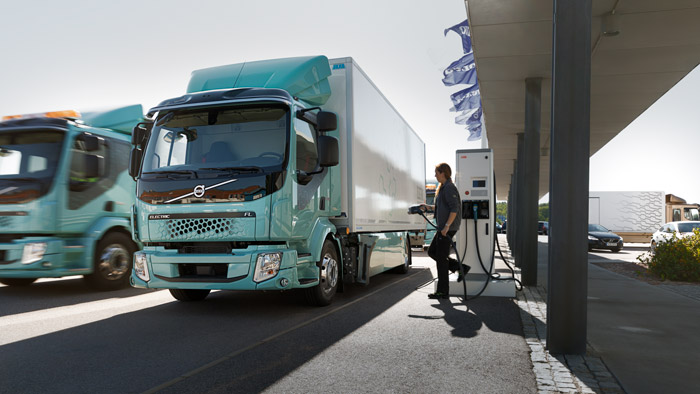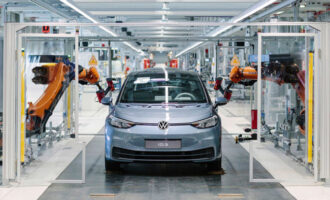
Volvo Trucks launches sale of electric trucks for urban transport
Volvo Trucks announced the start of sales of its Volvo FL and Volvo FE electric trucks in selected markets within Europe, meeting the increasing demand for sustainable transport solutions in city environments.
In the absence of exhaust emissions and reduced noise levels, electric trucks offer huge potential in urban areas. First, the low noise levels make it possible to carry out deliveries and refuse collection in early mornings, late evenings or even at night, helping to improve transport logistics and reduce congestion during peak hours. Second, with better air quality and less noise, electric trucks create new opportunities for city planning and road infrastructure. An electric truck, for example, can be used in indoor loading areas and environmental zones.
“Global urbanization requires urban logistics and truck transport with zero emissions and less noise with increasing urgency. With the Volvo FL Electric and Volvo FE Electric we are able to meet both the strong environmental demands as well as the high commercial requirements of our customers,” says Jonas Odermalm, VP Product Line Electromobility.
One challenge is to maximize the payload at the same time as optimizing the driving range.
“Volvo Trucks’ solutions will be based on individual business needs that consider a number of parameters, such as driving cycles, load capacity, and route analysis, to use the battery capacity in the most efficient way possible,” says Odermalm.
Volvo FL Electric and Volvo FE Electric were developed in close collaboration with selected customers operating in Gothenburg, Sweden. Feedback has been very positive, and the drivers involved in the collaboration are impressed by the responsive driveline, seamless acceleration and how quiet the trucks are.
“While customer feedback has been positive,” Odermalm says, “we do recognize that charging infrastructure is still under development in most cities and we are working alongside both public and private partners to agree on a long-term strategy for the expansion of charging infrastructure. But it’s clear that the pace of development of charging infrastructure needs to increase.”
Addressing climate change will require the availability of several driveline technologies.
“Electric vehicles, charged with electricity from renewable sources, are indeed a powerful step towards more sustainable city distribution. However, there will not be one singular energy source that addresses climate change and all other environmental issues. Different types of transport require different types of driveline solutions,” Odermalm says.









